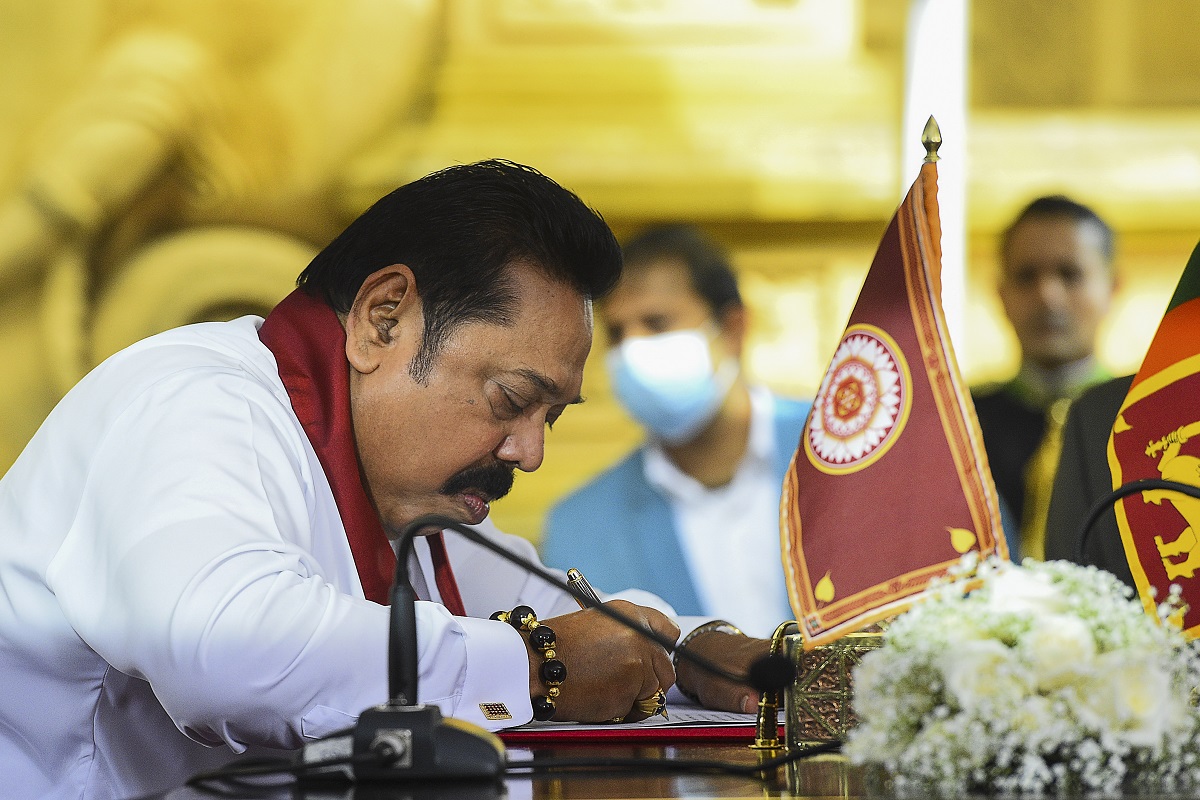Promises in Peril
Anura Kumara Dissanayake’s meteoric rise to the presidency in Sri Lanka has been followed by a sobering realisation: the promises made during a campaign in the heat of a national crisis are far easier to make than to keep.
Thirty-nine petitions were filed by opposition party leaders and civil society groups in the Supreme Court challenging the legality of the amendment.

(Photo: AFP)
The status of Sri Lanka as a democracy suffered a serious setback on 29 October when Mahinda Yapa Abeywardene, Speaker of Parliament, signed the 20th Amendment to the Constitution passed with a two-thirds majority, 156 voting in favour, including eight from Opposition benches, 65 against and one absentee.
Former President Sirisena was the lone absentee. The controversial amendment gives Gotabaya Rajapaksa, elected President last August, absolute executive powers and immunity from wrong doings. Thirty-nine petitions were filed by opposition party leaders and civil society groups in the Supreme Court challenging the legality of the amendment.
Advertisement
The court ruled that as long as the legislation was passed by a two-thirds majority, except for four clauses that needed additional public approval through referendum, it was valid. The 20th Amendment replaces the 19th Amendment enacted in 2015 with the full support of the Rajapaksa clan, who were then in the opposition, to curtail wide-ranging powers of the president.
Advertisement
The 19th Amendment barred people with dual citizenship from holding the highest office of President. Gotabaya and one of his brothers, Basil Rajapaksa, were citizens of both Sri Lanka and the USA.
Gotabaya renounced his US citizenship to enter the presidential race. The 20th Amendment has eliminated the dual citizen provision. Now he can get his US citizenship restored. Opposition party members voted for the amendment on an assurance by the President that he would enact a new constitution by November 2021 which will retain the 19th Amendment prohibitions on dual citizenship.
The office of Prime Minister has been turned into a dummy post. The President’s brother and former President Mahinda Rajapaksa is now Prime Minister in the Sri Lanka Podujana Party government. The President now has the power to hold ministries, sack ministers including the Prime Minister, and have authority over hitherto independent commissions that oversee elections, police, human rights and anti-corruption organisations. The amendment also allows the President to dissolve Parliament half-way through a fiveyear term.
Ever since Gotabaya was elected President in November last, politics in the island nation has undergone a sea change. After dissolving Parliament in March, he ran the country like a monarchy for the next five months. In the August parliamentary election, his SLPP won a two-thirds majority. In a democracy, the Executive, Legislature and the Judiciary should be able to function independently.
The 20th Amendment has made the Executive the supreme head. In 2009 when his brother Mahinda Rajapaksa was the President, Gotabaya, an army officer, was the secretary of defence. He oversaw the defeat of the LTTE and the killing of its leader Velupillai Prabhakaran and authorised extrajudicial killings of about 40,000 Tamil civilians.
The Press was gagged, and inconvenient journalists were abducted in white vans without number plates and roughed up. Lasantha Wickrematunge, founder-editor of the independent Sunday Leader was shot and killed on the main streets of Colombo in broad daylight. No one was arrested or brought to book. With Gotabaya Rajapaksa at the helm, most of the journalistic community in Sri Lanka has lapsed into self-censorship to safeguard their life and limbs.
Advertisement